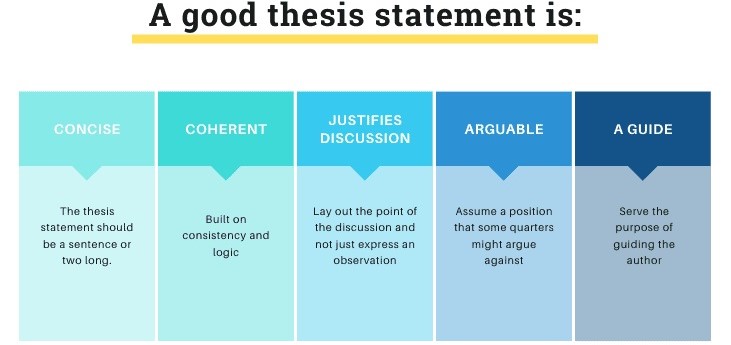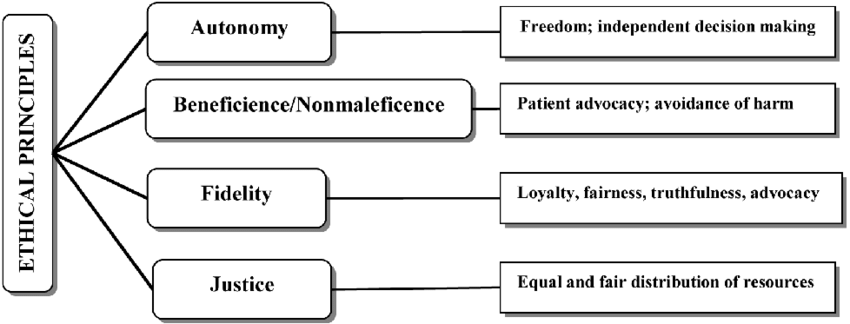
Table of Contents
The psychiatric nursing essay is a crucial component of many nursing school applications and postgraduate programs. It’s a chance to showcase your passion for mental health care, your critical thinking skills, and your understanding of the intricate challenges and rewards of the field.
Writing an engaging psychiatric nursing essay can seem daunting, especially to beginners. However, you can create a compelling and impactful piece that sets you apart by following a structured approach and incorporating key elements as outlined in this guide.
What is Psychiatric Nursing?
Psychiatric nursing is a specialized area of nursing that focuses on the care of individuals with mental health disorders and their families. It’s a challenging and rewarding field that requires a deep understanding of mental illness, therapeutic interventions, and the principles of patient-centered care.
Here’s a breakdown of what psychiatric nursing entails:
Scope of Practice:
- Assessment and Diagnosis: Psychiatric nurses assess patients’ mental and emotional states, gathering information about their symptoms, history, and current life situation. They use standardized tools and interviews to evaluate mental health conditions and contribute to the diagnosis process.
- Treatment Planning: Nurses collaborate with other healthcare professionals, such as psychiatrists, social workers, and therapists, to develop individualized treatment plans based on the patient’s needs and goals.
- Medication Administration: They administer prescribed medications, monitor for side effects, and educate patients about their medications.
- Therapeutic Interventions: Psychiatric nurses utilize a range of therapeutic interventions to help patients cope with their mental health challenges. These can include:
- Individual and group therapy: Providing support, guidance, and coping strategies to individuals and groups of patients.
- Psychoeducation: Educating patients and their families about mental health conditions, treatments, and support services.
- Milieu therapy: Creating a therapeutic environment that promotes healing and recovery.
- Crisis intervention: Providing immediate support and intervention to individuals experiencing acute mental health crises.
- Case Management: Psychiatric nurses coordinate care for their patients, ensuring they have access to necessary resources and services.
- Advocacy: They advocate for their patients’ rights and well-being, helping them navigate the healthcare system and access community support services.
- Family Education and Support: Nurses educate families about mental illness, provide coping strategies, and offer support and guidance during challenging times.
Key Skills and Qualities:
- Empathy and Compassion: Psychiatric nurses must be able to connect with patients on a human level and understand their struggles.
- Strong Communication Skills: Effective communication is essential for building rapport with patients, understanding their needs, and conveying information clearly.
- Critical Thinking and Problem-Solving Skills: Nurses must be able to analyze complex situations, evaluate patient data, and make informed decisions.
- Resilience and Stress Management: Working in a psychiatric setting can be challenging and emotionally demanding. Nurses need to be able to cope with stress and maintain a professional demeanor.
- Professionalism and Ethics: Psychiatric nurses uphold professional standards and ethical principles, ensuring patient privacy, confidentiality, and safety.

Where Psychiatric Nurses Work:
- Hospitals and Clinics: Psychiatric units, emergency departments, and community mental health centers.
- Outpatient Settings: Private practices, group therapy settings, and community-based organizations.
- Schools and Universities: Providing mental health services to students and staff.
- Forensic Settings: Working with individuals who have committed crimes related to mental illness.
- Research: Contributing to research efforts to advance knowledge and understanding of mental health disorders.
Psychiatric nursing is a dynamic and challenging field that offers a unique opportunity to make a real difference in the lives of individuals with mental health challenges and their families. By combining their nursing expertise with a deep understanding of mental illness and therapeutic interventions, psychiatric nurses play a vital role in promoting mental well-being and supporting recovery.
Step-By-Step Guide to Writing a Psychiatric Nursing Essay
1. Understanding the Purpose of Psychiatric Nursing Essays
Before you even start writing, it’s essential to understand the purpose of the psychiatric nursing essay. The admissions committee wants to know:
- Your motivations: Why are you drawn to psychiatric nursing? What personal experiences, observations, or values have shaped your interest in this specialized field?
- Your understanding of the field: Demonstrate your knowledge of the diverse aspects of psychiatric nursing, including its challenges and rewards, ethical considerations, and the importance of patient-centered care.
- Your critical thinking skills: Show your ability to analyze complex situations, apply theoretical concepts to practical scenarios, and demonstrate your understanding of the biopsychosocial approach to mental health.
- Your potential as a future psychiatric nurse: Convince the committee that you possess the necessary qualities, such as empathy, resilience, and communication skills, to excel in this demanding profession.
2. Identifying the Essay Prompt and its Specific Requirements
Each psychiatric nursing essay prompt will have unique requirements. Carefully read and analyze the prompt to identify:
- The specific topic or question: What is the essay asking you to address? Is it about your personal journey, a specific mental health issue, or a theoretical concept?
- The word limit: Adhere to the word count provided, as exceeding it may be penalized.
- The desired tone and style: Is the essay expected to be formal, reflective, or analytical?
- Any specific instructions: Pay attention to any additional requirements, such as formatting guidelines or referencing style.
3. Brainstorming Ideas and Developing a Strong Thesis Statement
Once you understand the prompt, brainstorm relevant ideas and experiences that align with the topic. Consider the following to create a strong thesis statement.
- Personal experiences: Have you had any encounters with mental health issues, either personally or through family or friends? How did these experiences influence your interest in psychiatric nursing?
- Academic knowledge: Reflect on your coursework, readings, and clinical experiences in mental health. What concepts or theories resonate with you? How do these apply to your understanding of psychiatric nursing?
- Current events and societal trends: How do current issues like mental health stigma, access to care, or the impact of technology relate to your understanding of psychiatric nursing?

From your brainstorming, choose the most compelling idea and develop a clear and concise thesis statement. This should be a single sentence that expresses the main argument or point you will develop throughout your psychiatric nursing essay.
4. Organizing Your Thoughts: Structuring the Essay
A well-organized structure will enhance the clarity and impact of your psychiatric nursing essay. Consider using the following format:
- Introduction: Start with a strong hook that grabs the reader’s attention. Briefly introduce the topic and state your thesis statement.
- Body Paragraphs: Each paragraph should focus on a single supporting idea or argument related to your thesis statement. Provide evidence, examples, and insights to support your points. Use transitions to connect ideas smoothly between paragraphs.
- Conclusion: Summarize your main points and restate your thesis statement in a new way. End with a strong call to action or a concluding thought that leaves a lasting impression.
5. Weaving Narrative and Evidence: Crafting Compelling Content
A compelling psychiatric nursing essay goes beyond simply stating facts. Use your personal experiences, observations, and academic knowledge to create a narrative that engages the reader.
- Show, don’t tell: Instead of simply stating your experiences, use vivid descriptions and details to bring your story to life.
- Connect to the field: Relate your personal experiences and insights to the broader context of psychiatric nursing. How do your experiences inform your understanding of the challenges and rewards of the profession?
- Use credible sources: Support your arguments with evidence from academic research, professional journals, or reputable organizations.
- Maintain a professional tone: While personal anecdotes can be effective, ensure your essay maintains a professional and respectful tone throughout.
6. Writing with Clarity, Conciseness, and Style
- Use clear and concise language: Avoid jargon or overly complex language. Focus on conveying your ideas in a straightforward and accessible manner.
- Write in active voice: Use strong verbs and direct language to create a more dynamic and engaging essay.
- Vary sentence structure: Mix short and long sentences to create rhythm and prevent monotony.
- Proofread carefully: Pay attention to grammar, spelling, and punctuation. Consider using online grammar checkers or having a trusted friend or mentor review your work.
7. Incorporating Key Elements for a Standout Psychiatric Nursing Essay
To create a truly exceptional psychiatric nursing essay, consider incorporating the following elements:
- Empathy and Compassion: Demonstrate your genuine understanding and compassion for individuals with mental health challenges. Share examples of how you have shown empathy or compassion in your interactions with others.
- Professionalism and Ethics: Discuss your understanding of ethical principles in psychiatric nursing. Highlight situations where you have demonstrated ethical decision-making or awareness of the importance of patient confidentiality.
- Critical Thinking Skills: Analyze a specific scenario or issue in mental health care. Demonstrate your ability to apply theoretical concepts and critical thinking skills to solve complex problems.
- Resilience and Adaptability: Discuss your ability to handle stress, cope with difficult situations, and maintain a professional demeanor in challenging environments.

8. Examples of Powerful Psychiatric Nursing Essay Topics
Here are some potential psychiatric nursing essay topics that allow you to showcase your unique qualities and experiences:
- The Impact of Stigma on Mental Health: Discuss the impact of stigma on individuals with mental health challenges and how psychiatric nurses can advocate for destigmatization and increased awareness.
- The Importance of Patient-Centered Care in Psychiatric Nursing: Explain why patient-centered care is crucial in psychiatric nursing and how it can be implemented to provide holistic and effective treatment.
- The Role of Technology in Mental Health Care: Analyze the impact of technology on mental health care, discussing its benefits and challenges and its potential to improve access to services.
- A Personal Experience that Shaped My Passion for Psychiatric Nursing: Share a personal experience that ignited your passion for mental health care and how it shaped your career goals.
- The Importance of Cultural Competence in Psychiatric Nursing: Discuss the need for cultural sensitivity in psychiatric nursing and how it can enhance the quality of care provided to diverse patient populations.
9. Revising and Refining Your Essay for Impact
Once you’ve completed your draft, it’s crucial to revise and refine your psychiatric nursing essay for clarity, impact, and coherence.
- Read your essay aloud: This will help you identify areas where your writing is unclear or awkward.
- Ask for feedback: Share your essay with trusted friends, family members, or mentors for their insights and suggestions.
- Seek professional assistance: Consider seeking assistance from a writing center or a professional editor to ensure your essay meets the highest standards.
10. Finalizing and Submitting Your Psychiatric Nursing Essay
- Proofread one last time: Ensure your essay is free of any errors in grammar, spelling, and punctuation.
- Format your essay according to the guidelines: Follow the specified formatting rules for font, spacing, margins, and referencing.
- Submit your essay on time: Allow ample time to complete and submit your essay to avoid any last-minute issues.
Common Nursing Essay Writing Pitfalls and How to Avoid Them
Writing a strong psychiatric nursing essay requires more than simply presenting facts. It necessitates a deep understanding of the subject matter, a clear and concise writing style, and the ability to weave personal reflections into the narrative. Unfortunately, several common pitfalls can derail even the most well-intentioned psychiatric nursing essay. Recognizing these pitfalls is the first step towards crafting a powerful and impactful essay.
1. Lack of Focus and Clarity: A poorly focused psychiatric nursing essay can easily wander off-topic, confusing the reader and undermining its central message. To avoid this, carefully define your essay’s thesis statement and ensure every paragraph contributes to its development.
2. Overreliance on Generalizations: A psychiatric nursing essay should avoid sweeping generalizations about mental health conditions or treatment approaches. Instead, they should focus on specific examples and evidence-based practices, ensuring a nuanced and informed discussion.
3. Ignoring the Patient Perspective: Many psychiatric nursing essays often center around clinical practice, but neglecting the patient’s perspective can create a sterile and detached tone. Include patient testimonials, ethical considerations, and the impact of illness on their lives to provide a holistic understanding.
4. Insufficient Research and Evidence: A stellar psychiatric nursing essay requires rigorous research and citations to support its arguments. Relying on anecdotal evidence or unsubstantiated claims weakens its credibility and detracts from its value.
5. Lack of Personal Reflection: A well-crafted psychiatric nursing essay often benefits from incorporating personal reflections, ethical dilemmas, or impactful experiences that demonstrate your understanding of the subject. However, it’s crucial to maintain a professional tone and avoid excessive self-indulgence.
6. Ignoring the Ethical Considerations: Psychiatric nursing involves navigating complex ethical dilemmas. Psychiatric nursing essays should acknowledge these challenges, explore different perspectives, and demonstrate a commitment to ethical practice and patient advocacy.
7. Poor Formatting and Style: A poorly formatted and stylistically inconsistent psychiatric nursing essay can create a negative impression on the reader. Pay attention to grammar, punctuation, clarity, and organization to ensure your essay is polished and engaging.
By carefully considering these pitfalls and implementing strategies to avoid them, you can elevate your psychiatric nursing essay from good to great. Remember, the goal is to demonstrate your knowledge, critical thinking, and passion for the field, ultimately contributing to a deeper understanding of psychiatric nursing’s complexities and its impact on individuals and society.
A Commitment to Excellence in Psychiatric Nursing
Writing an impeccable psychiatric nursing essay is a challenging but rewarding process. By following the steps outlined in this guide, you can create a compelling piece that effectively communicates your passion, knowledge, and commitment to providing compassionate and effective care to individuals with mental health challenges. Remember, your essay is a reflection of your dedication to the field of psychiatric nursing and your potential to make a meaningful difference in the lives of others.
Get Professional Psychiatric Nursing Essay Writing Assistance
Writing a stellar psychiatric nursing essay may still be an uphill task to most students. However, there is no reason to worry because at Nursing Papers, we can provide custom help to enable you navigate this challenging task seamlessly. Our service covers topic suggestion, essay writing, proofreading and plagiarism removal. Besides, we can also help you with nursing research papers, case studies and dissertations.







